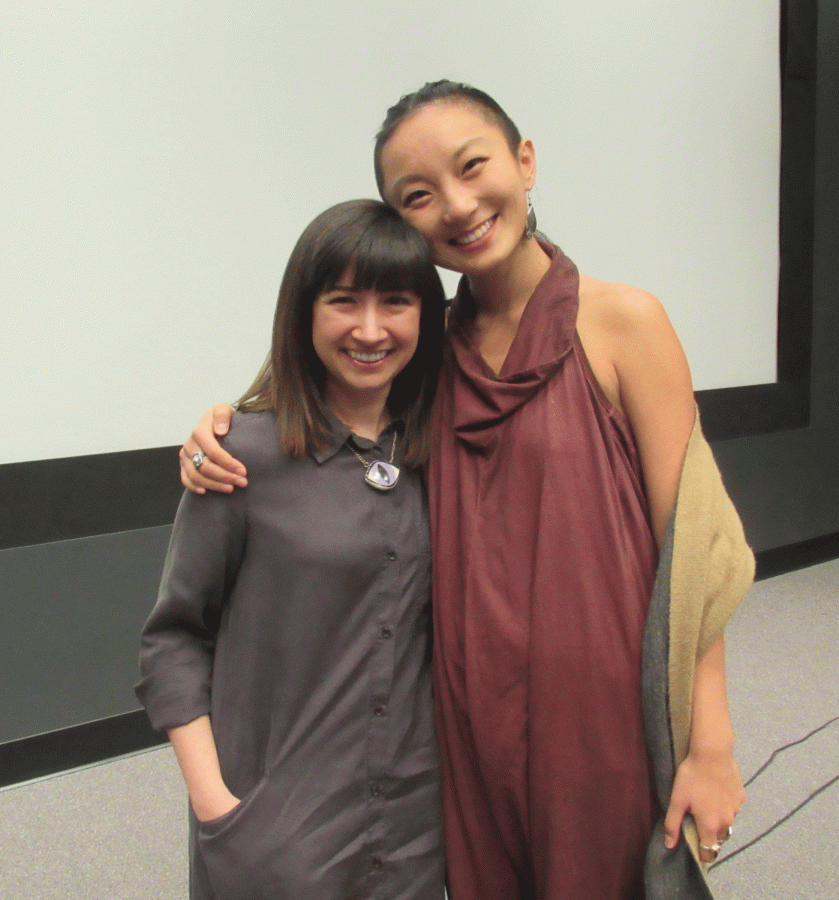Women Share Powerful Abortion Stories in Friday Night Film Series
On Friday, January 3, 2017 at 5 p.m. in Golden Auditorium, Colgate students gathered to watch the Friday Night Film Series: Abortion Stories Screening and Panel Discussion. The evening consisted of two short films: “The Abortion Diaries,” directed by Assistant Professor of Art and Art History Penny Lane, and “Names of Women,” directed by Poppy Liu ’13.
“The Abortion Diaries” presented the topic of abortion in a way comparable to a dinner table conversation, introducing twelve diverse women who each shared their stories about having an abortion. The women ranged in age from 19 to 54; their occupations varied from doctors and teachers to artists and mothers.
The film opened with a woman who had an abortion at 14. She shared her thoughts about how society often tells women that abortions are very bad, and that there is nothing worse than becoming pregnant before marriage, thus influencing women’s thoughts and decisions. Interspersed throughout the film were shocking statistics about abortions in the United States and the world; only seventeen states in the United States provide financial help to poor women seeking abortions.
“I wanted the film to be a beginning of a conversation as opposed to a theatrical experience,” Lane said.
One of the most emotionally poignant parts of “The Abortion Diaries” was when a woman spoke about receiving an illegal abortion, which caused an infection that led to infertility. It was incredibly sad to hear how infertility forever ruined her chances of having the biological child that she so
desperately wanted.
Although the film reported that 1.3 million in the United States have an abortion each year, a stigma about abortion is still alive and well. Many women in the film referred to the abortion debate as a threatened right and a detriment to their own independence. A clear sentiment in the film was women’s dissatisfaction with the idea that a potential life was worth more than the life of the already existing woman.
Liu’s “Names of Women,” in contrast to Lane’s documentary, took a more artistic, abstract approach to depicting the story of obtaining an abortion. The film focused on the true story of Liu’s own experience with getting an abortion in 2015. It was a very cosmic, raw, symbolic, minute-by-minute narrative. The film ended by honoring the names and identities of all the women who have impacted Liu throughout her journey.
“I found people I could talk to after I shared my story. It was a healing process that took a really long time. It was messy. All these new layers of vulnerability kept happening,” Liu said.
The $20,000 budget of the film was raised last summer, helping Liu feel empowered to tell her story.
The films were followed by a panel discussion with Poppy Liu and Caitlin Grossjung ’13, who produced “Names of Women,” with Penny Lane on a video call. It was a great chance for an intimate discussion with the audience about the films and the directors’ personal experiences.
“I really enjoyed the films because they allowed people to have a conversation about a topic that is not often talked about,” sophomore Emily Wortmann said.
Liu was a Theater and Women’s Studies double major at Colgate and created and produced “This is Not a Play About Sex,” which is presented annually on campus. Liu recalled that she wondered a lot about her identity and purpose at Colgate, but she was thankful for a place that allowed her to work hard for her passions. She discussed her love for art, activism and asking questions.
Grossjung was involved in Broad Street Records, performed in “This is Not a Play About Sex,” took many film classes at Colgate and spoke about the importance of storytelling in life.
Lane noted that her film was largely the product of the anger and isolation she felt in the early 2000s when she faced her own choice of whether or not to get an abortion. She wanted the film to be a safe space for women to openly tell their stories and their honest opinions, without judgment.
“It’s not just about storytelling. When we create spaces where we can all learn from each other, healing happens,” Grossjung said.







